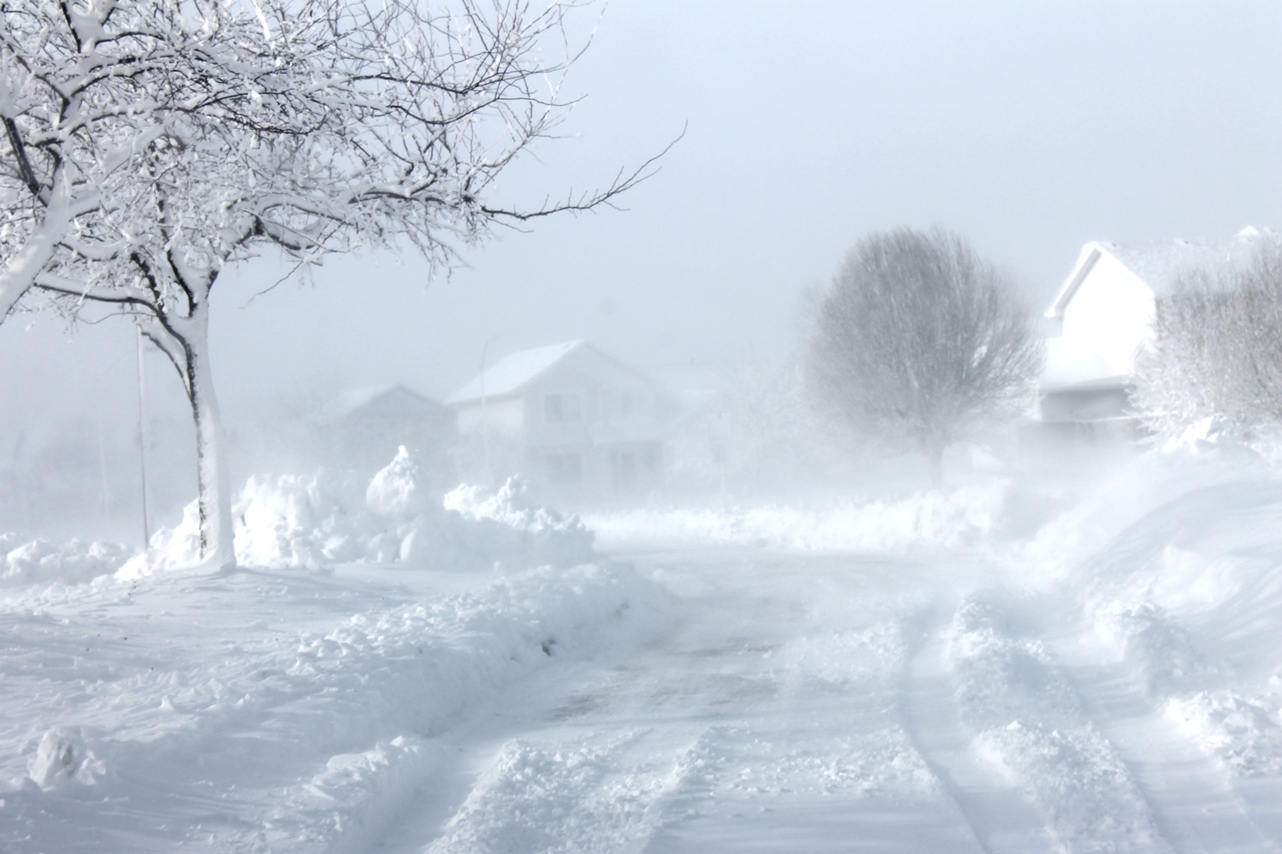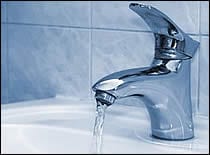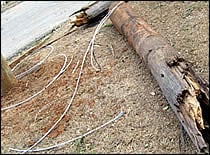
I don't know about you but I get a little nervous when the lights start flickering. We had a 3 day power outage at the end of 2016 that none of us have forgotten. We were glad for a large wood pile and our fireplace those days.
The sticky wicket was that we had 3 households and 1 generator. It was the generator that we used across the road when we lived there. We hadn't gotten around to getting one for this house and Andrew and Marie had just gotten home from their honeymoon the day before the outage began.
This meant that the guys had to go out in the blizzard and move the generator from one house to the other so that nobody's pipes would freeze. It was a miserable day. The next day, the second day of the blizzard, Robert got up early and headed for Bismarck's Menards which is 60 miles away.
We fed the fire and prayed that he would be ok. Robert got there as generators were flying off the shelves. He was able to get 2 good sized ones--1 for our house and one for the newlywed's home. That helped a lot.
Of course, a generator doesn't enable a family of 4 (my mother-in-law was with us at that time) to use electricity like normal. Then we had another problem that our children's households were not dealing with.
I can't recall exactly the cause but our brand new generator broke something in our furnace so we STILL were without power. We kept feeding the fire; played games in front of it; and pondered our neighbor's offers of a shower. None of us 4 were inclined to go out in the blizzard just to take a shower; fight through the storm; then come back to a cold house.
With the fire going in the family room 24/7 we were able to keep the temperature in the house between 40 and 45. MANY layers of blankets helped us to sleep when we weren't feeding the fire which we took turns doing.
The last day of the blizzard, as it was loosing it's strength, Robert took his mom home (she had to get to a doctor's appointment for her scheduled cataract surgery) and got the part for our furnace. He arrived safely home and put the part in. Then he had to make some adjustment to the generator and lo and behold our furnace started.
We watched with delight as the temperature started rising in the house. It had reached about 55 when the POWER CAME BACK ON!! It's not that we weren't glad but poor Robert had driven through the blizzard twice to get us heat in the house...............
All in all, it was NOT a pleasant experience and I'm shivering just thinking about it as I write. We didn't even have it bad compared with those who had livestock to care for. Michael and Cora had milking to do; calves to feed; and the rest of their livestock to care for through the 3 day blizzard. YUK!
Being we've had a few flickering lights here lately, I thought I'd write to encourage everyone to make preparations for power outages. If you've never had one, that's great, but that doesn't mean that you won't.
I looked at several articles on making preparations for power outages. This one from the Center for Disease Control and Prevention seemed very helpful to me. I urge you to read it, or something similar, to be prepared for whatever our electrical grid may experience in the years ahead. Or you may want to go a step further. Perhaps you, like our son's household, will want to set up a solar heating system??
Keep warm,
Dawn
PS Where is that flashlight anyway?
What You Need to Know When the Power Goes Out Unexpectedly

Take Action
- To prevent carbon monoxide poisoning, use generators, pressure washers, grills, and similar items outdoors only. Generators should be used at least 20 feet away from your home.
- Identify and throw away food that may not be safe to eat.
- Check with local authorities to be sure your water is safe.
- In hot weather, stay cool and drink plenty of fluids to prevent heat-related illness.
- In cold weather, wear layers of clothing, which help to keep in body heat.
- Avoid downed power lines, if a power line falls on a car, you should stay inside the vehicle.
CDC offers these tips to help you prepare for and cope with sudden loss of power.
Food Safety
If the power is out for less than 4 hours, then the food in your refrigerator and freezer will be safe to consume. While the power is out, keep the refrigerator and freezer doors closed as much as possible to keep food cold for longer. Visit Keep Food and Water Safe After a Disaster or Emergency for more information.
Safe Drinking Water

When power goes out, water purification systems may not be functioning fully. Safe water for drinking, cooking, and personal hygiene includes bottled, boiled, or treated water. Your state, local, or tribal health department can make specific recommendations for boiling or treating water in your area. For more information, visit Keep Food and Water Safe After a Disaster or Emergency.
Medications
Some drugs require refrigeration to keep their strength, including many liquid drugs.
- When the power is out for a day or more, throw away any medication that should be refrigerated, unless the drug’s label says otherwise.
- If a life depends on the refrigerated drug, but the medications have been at room temperature, use them only until a new supply is available.
- Replace all refrigerated drugs as soon as possible.
Resources for people with chronic disease or disability(https://www.cdc.gov/disasters/chronic.html).
Extreme Heat and Cold
Heat
Be aware of yours and others’ risk for heat stroke, heat exhaustion, heat cramps and fainting. To avoid heat stress, you should follow CDC’s heat safety tips.
Heat stroke is the most serious heat illness. It happens when the body can’t control its own temperature and its temperature rises rapidly. Sweating fails and the body cannot cool down. Body temperature may rise to 106°F or higher within 10 to 15 minutes. Heat stroke can cause death or permanent disability if emergency care is not given. Visit Warning Signs and Symptoms of Heat-Related Illness for more information on how to recognize symptoms and what to do if someone develops a heat-related illness.
If air conditioning is not available in your home:
- Contact your local health department or locate an air-conditioned shelter in your area.
- Spend some time at a shopping mall or public library- even a few hours spent in air conditioning can help.
- Take cool showers or baths.
- Don’t rely solely on fans to keep you cool. While electric fans might provide some comfort, when temperatures are really hot, they won’t prevent heat-related illness.
For more information on heat-related illnesses and treatment, see the CDC Extreme Heat Web site. Information for workers can be found on the NIOSH Web page Protecting Workers from Heat Illness.
These resources also provide information about extreme heat:
- Heat Stress National Institute for Occupational Safety and Health (NIOSH) Comprehensive heat-induced occupational illness and injury information.
Cold
Hypothermia happens when a person’s core body temperature is lower than 35°C (95°F). Learn more about how to recognize and prevent hypothermia.
First Aid for Electrical Shock
If you believe someone has been electrocuted take the following steps:
- Look first. Don’t touch. The person may still be in contact with the electrical source. Touching the person may pass the current through you.
- Call or have someone else call 911 or emergency medical help.
- Turn off the source of electricity if possible. If not, move the source away from you and the affected person using a nonconducting object made of cardboard, plastic or wood.
- Once the person is free of the source of electricity, check the person’s breathing and pulse. If either has stopped or seems dangerously slow or shallow, begin cardiopulmonary resuscitation (CPR) immediately.
- If the person is faint or pale or shows other signs of shock, lay the person down with the head slightly lower than the trunk of his or her body and the legs elevated.
- Don’t touch burns, break blisters, or remove burned clothing. Electrical shock may cause burns inside the body, so be sure the person is taken to a doctor.
Power Line Hazards and Cars

If a power line falls on a car, you should stay inside the vehicle. This is the safest place to stay. Warn people not to touch the car or the line. Call or ask someone to call the local utility company and emergency services.
The only circumstance in which you should consider leaving a car that is in contact with a downed power line is if the vehicle catches on fire. Open the door. Do not step out of the car. You may receive a shock. Instead, jump free of the car so that your body clears the vehicle before touching the ground. Once you clear the car, shuffle at least 50 feet away, with both feet on the ground.
As in all power line related emergencies, call for help immediately by dialing 911 or call your electric utility company’s Service Center/Dispatch Office.
Do not try to help someone else from the car while you are standing on the ground.
Avoid Carbon Monoxide
For important information about the risk of carbon monoxide poisoning during a power outage, see the following resources.
- Returning Home After a Disaster: Be Healthy and Safe(https://www.cdc.gov/disasters/returnhome.html)
- Carbon Monoxide Poisoning After a Disaster(https://www.cdc.gov/disasters/carbonmonoxide.html)
- Carbon Monoxide Poisoning Fact Sheet [National Center for Environmental Health].
Dangers of Gasoline Siphoning
Gasoline may be in short supply, before, during, and after natural disasters, such as hurricanes and floods. When there is not enough gasoline, people may want to take gasoline from one container and put it into another. This can be done by siphoning.
- Siphoning gasoline can harm your health. Do not try to siphon gasoline. It can cause serious injury or illness.
- Siphoning is when you use your mouth or a pump to suck a liquid such as gasoline out of one container, such as a gas tank, through a funnel or tube and into another container
- Possible injuries and illness from any form of siphoning include:
- Burns and injury from unintentional combustion of gasoline and/or gasoline vapors. This may happen if the gasoline or its vapors come into contact with a lit cigarette or static electricity.
- Confusion, drowsiness, headache or problems concentrating from breathing gasoline vapors
- Irritation of skin, eye or mucus membranes on contact
- Other possible injuries and illness from siphoning when you use your mouth for suction include:
- Lung damage, if gasoline is inhaled into the lungs (aspiration) during mouth-based siphoning
- Gastrointestinal (GI) signs and symptoms such as nausea, vomiting and stomach pain if any gasoline is swallowed
- Irritation of mucous membranes inside your mouth, throat and stomach on contact
- If you do breath gasoline fumes or swallow gasoline and feel ill, see a doctor and/or call the poison center for help at 1-800-222-1222
Safety at Work During Power Recovery
As power returns after an outage, people at work may be at risk of electrical or traumatic injuries as power lines are reenergized and equipment is reactivated. CDC recommends that employers and employees be aware of those risks and take protective steps if they are in contact with or in proximity to power lines, electrical components, and the moving parts of heavy machinery.
More information on electrical safety is available in our fact sheet on Worker Safety in a Power Outage(https://www.cdc.gov/disasters/poweroutage/workersafety.html) and Electrical Safety [NIOSH].
Be Prepared for an Emergency
CDC recommends that people make an emergency plan that includes a disaster supply kit. This kit should include enough water, dried and canned food, and emergency supplies (flashlights, batteries, first-aid supplies, prescription medicines, and a digital thermometer) to last at least 3 days. Use battery-powered flashlights and lanterns, rather than candles, gas lanterns, or torches (to minimize the risk of fire).
To learn more information on emergency plans and supply kits, see
Impact of Power Outage on Vaccine Storage
A power outage has significant implications for vaccine storage. For CDC guidance regarding vaccine storage issues, see Impact of Power Outages on Vaccine Storage(https://www.cdc.gov/disasters/poweroutage/vaccinestorage.html).


No comments:
Post a Comment